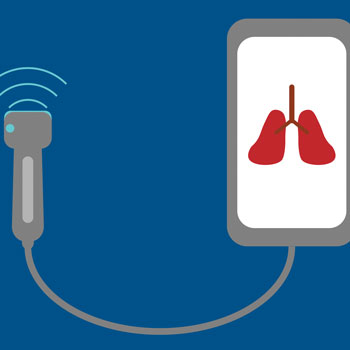Latest updates on ACP's priorities, initiatives
ACP Spotlight offers readers a look at ACP's current top priorities and initiatives, as well as highlights from our e-newsletter, I.M. Matters Weekly from ACP.
ACP calls for changes to performance measures for colorectal cancer screening, unified approach to performance measurement
In a new position paper, the College stresses that using appropriate performance measures for colorectal cancer screening is essential to avoid unnecessary harms to patients, limit physician burden, and protect reputations and reimbursements.
The paper outlines the current performance measures for colorectal cancer screening and surveillance, identifying those that are methodologically sound and evidence-based. ACP supports one out of the five measures relevant to internal medicine, “Facility 7-Day Risk-Standardized Hospital Visit Rate after Outpatient Colonoscopy” from CMS's Measures Inventory Tool, which measures the rate of risk-standardized, all-cause, unplanned hospital visits within seven days of an outpatient colonoscopy among Medicare fee-for-service patients ages 65 years and older. The paper also emphasizes that the other four performance measures reviewed were not aligned with current scientific evidence, promoted unnecessary screening in patients beyond appropriate age groups, or were not reliable at the levels at which they were applied.
The paper, “Quality Indicators for Screening and Surveillance of Colorectal Cancer in Adults,” was published by Annals of Internal Medicine on Oct. 21.
In addition, an earlier ACP position paper urged a unified approach to performance measurement, focusing on core clinical topics and evidence-based measures that can improve patient care while reducing physician burnout.
The paper, “Identifying Core Clinical Topics and Recommending Core Performance Measures for Internal Medicine Physicians,” was published Sept. 16 by Annals of Internal Medicine. It outlines a structured approach to identifying clinical conditions most relevant to internal medicine and the performance measures most likely to benefit patients. The framework was applied to high-quality guidelines for osteoporosis and depression to demonstrate how meaningful measures can drive better outcomes.
The paper also emphasizes that performance measures should focus on high-priority populations and conditions, align with patient needs, and improve the physician experience. ACP warns that excessive measures not tied to evidence or outcomes increase administrative work, fuel physician burnout, and risk worsening workforce shortages.
ACP announces 2025-2026 recipients of Mastership, national awards
The Board of Regents recently approved the 2025-2026 recipients of Mastership and national College awards. If you would like to personally congratulate any of the new awardees or MACPs, please contact John Haefele, Administrator, Board of Regents and Governance Activities.
ICYMI: Highlights from I.M. Matters Weekly
- Two-dose recombinant shingles vaccine effective, even in patients who got live version. Two doses of the recombinant vaccine had a relative effectiveness of 67.9% versus one dose, and the second dose was similarly effective whether administered within the CDC-recommended interval of two to six months after the first or within an extended window, a recent study found. The study was published Oct. 14 by Annals of Internal Medicine and summarized in the Oct. 14 I.M. Matters Weekly from ACP.
- 2024-2025 COVID-19 vaccine associated with reduced hospitalizations, deaths. The COVID-19 vaccine had an effectiveness of 29.3% against related ED visits, 39.2% against hospitalization, and 64.0% against COVID-19-associated death, according to a comparison of U.S. veterans who got both COVID-19 and flu vaccines and those who got only flu shots. The study was published Oct. 8 by the New England Journal of Medicine and summarized in the Oct. 14 I.M. Matters Weekly from ACP.
- Patients with hyperglycemia during ICU stay have higher risk of postdischarge diabetes. Critical illness-associated hyperglycemia is associated with a 4.1% risk of new-onset diabetes within five years of discharge, compared to 1.8% in patients who didn't develop high blood glucose levels in the ICU, a Swedish study found. The study was published Oct. 6 by Critical Care Medicine and summarized in the Oct. 14 I.M. Matters Weekly from ACP.
In January 2026, I.M. Matters Weekly from ACP will be combined with I.M. Matters from ACP into an online news publication exclusive to ACP members.




